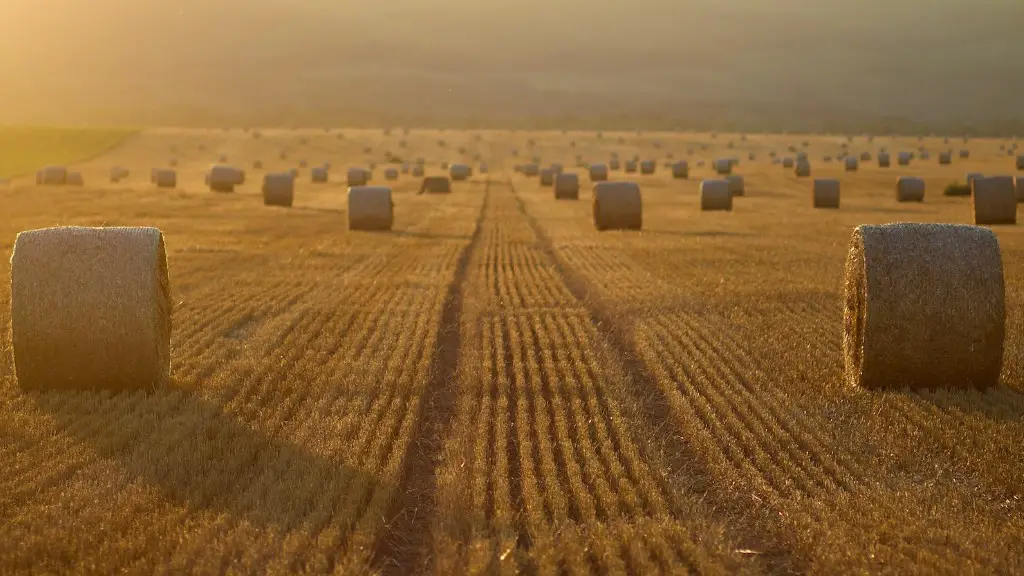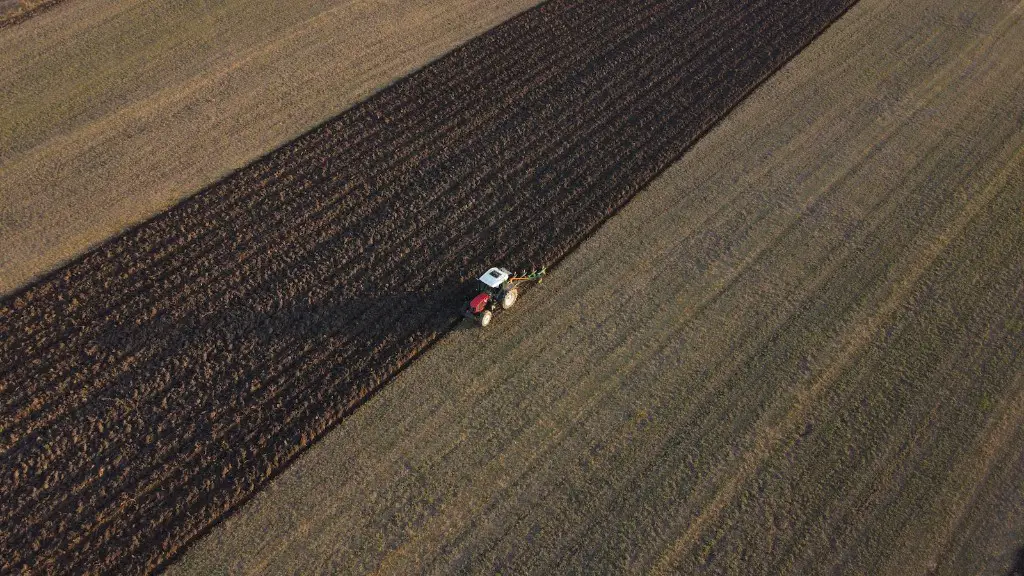Soil is essential to agriculture and plays a key role in supporting crop growth. It is a living environment, home to many microscopic organisms and microbes that help to create nutrient-rich conditions for plants to thrive. Additionally, soil acts as a filter for clean water and helps to mitigate the effects of floods and droughts. It also plays a vital role in sequestering carbon from the atmosphere and storing it, thus helping to reduce climate change. Moreover, it plays an important role in the global water cycle, by allowing water and nutrients to be stored above and below ground. In other words, it is essential for providing a healthy and productive environment for growing crops and keeping the earth’s environment balanced.
The Structure and Composition of Soil
Soil is composed of four main components: organic matter, air, water, and mineral particles. Organic matter is composed of decomposed plant and animal material from decaying organisms or organic waste from cultivation. This organic material is highly important in Agriculture maintaining the fertility of the soil, improving its drainage and aeration, and creating a hospitable environment for beneficial microbial activity. Additionally, soil can contain both absorbed and suspended water which helps to maintain the soil’s composition, structure, and nutrient availability. Finally, mineral particles, high in clay and sand, help to hold together the soil and increase its ability to hold moisture and air. Together, these components make up a complex, healthy and productive soil environment, which keeps the earth’s soils functioning and nourishing plants year-round.
The Roles of Soil in Agriculture
Soil plays a vital role in agriculture, offering a range of supportive roles for crop production. Firstly, soil serves as a medium for plant growth, allowing plants to absorb essential minerals and store water, as well as hosting beneficial microbes and organisms. Secondly, soil acts as a filter for water, helping to clean water on its passage through the soil and making it available to the plant roots. Thirdly, soil acts as a habitat for beneficial organisms and helps to reduce the risk of pest invasions. Finally, soil is an important conduit for air, providing an environment for the oxygen necessary for crop growth. It is for these reasons that a healthy, productive soil is essential for successful and sustainable crop production.
The Challenges of Maintaining Soil Health
Maintaining healthy soil is a challenge, as it is subject to many different forms of degradation. Soil erosion is particularly problematic in agricultural systems, caused by the removal of organic material, excessive water runoff, and unsustainable cultivation practices. Land degradation can also cause soil to become less fertile, leading to poorer crop production and a decrease in organic material. In order to maintain soil health, it is essential to create a sustainable system for managing any potential damage, for example through careful use of crops, animal husbandry, and water conservation. Additionally, there are a number of practices that can be put in place to improve soil health and fertility, such as crop rotation and cover cropping.
The Benefits of Soil in Agriculture
When soil is managed properly, it provides a range of benefits to agricultural systems. By improving the fertility of the soil, it can lead to higher yields and better harvests. Furthermore, by creating a hospitable environment for beneficial microorganisms, it can help to keep pests and diseases at bay. Additionally, the organic matter in the soil can act as a source of food and energy for the plants, as well as providing insulation to protect the roots from extreme temperatures. All of these benefits play a key role in maintaining successful and sustainable crop production.
Management of Soil in Agriculture
In order to ensure that soil health is maintained, there are a number of practices that can be put in place. Implementing sustainable agricultural practices such as crop rotation and cover cropping can help to improve the organic matter in the soil and improve soil fertility. Additionally, it is important to avoid over-cultivation or over-grazing, as this can lead to soil erosion and degradation. Finally, it is important to use sustainable methods for managing water and waste, including capturing and storing water, to ensure that soil health is not compromised.
Environmental Impacts of Soil
Soil plays an important role in the environment, providing essential habitats for species and helping to mitigate against the impacts of climate change. Through storing and sequestering carbon, soil can help to reduce global temperatures and improve air quality. Furthermore, it plays an important role in the water cycle, allowing water and nutrients to be stored and released in a controlled fashion. Additionally, soil helps to reduce the risk of flooding through increasing the water-holding capacity of the land and providing a barrier to prevent run-off. All of these benefits make soil essential for the health and stability of the environment.
The Importance of Sustainable Soil Management
Due to its importance for crop production and environmental health, it is essential that soil management is sustainable. To achieve this, farmers and policymakers need to work together to ensure that agricultural practices are sustainable, minimizing the risk of erosion and degradation. Additionally, efforts must be made to improve the fertility and organic matter content of the soil, to ensure that crops have access to the essential minerals and nutrition necessary for healthy growth. Overall, sustainable soil management can help to ensure that the earth’s soils are maintained in a healthy and productive state, providing the foundation for future crop production and environmental health.
Soil Education and outreach
In order to ensure that soil is managed sustainably, it is important to promote education and outreach amongst farmers and policymakers. Education initiatives can help to raise awareness of the importance of soil and increase understanding of soil health and management. Additionally, outreach activities such as field days and farmer-to-farmer knowledge exchanges can help to share information and best practice, giving farmers the tools they need to achieve sustainable soil management. Ultimately, education and outreach activities can help to ensure that soil is managed in a responsible manner, preserving this vital resource for future generations.
The Impact of Climate Change on Soil
Climate change poses a number of threats to soil health, from increasing temperatures and harsher weather to rising sea levels and ocean acidification. Rising temperatures can result in soil drying out and becoming less hospitable to beneficial organisms and microbes. Additionally, high levels of rainfall and flooding can lead to soil erosion, making it difficult for plants to access the essential nutrients they need for healthy growth. Furthermore, drought can reduce the water-holding capacity of the soil, leading to reduced crop production. In order to mitigate against the impacts of climate change, it is essential to adopt sustainable practices to maintain soil health and ensure that the earth’s soils remain in a productive state.
The Future of Soil
The future of soil rests in how we manage it today. In order to preserve this essential resource, it is essential to adopt sustainable practices and promote education and outreach amongst farmers and policymakers. Additionally, efforts must be made to improve the fertility and organic matter content of the soil, to ensure that crops have access to the essential minerals and nutrition necessary for healthy growth. Ultimately, maintaining soil health is a vital part of providing a sustainable future for crop production and environmental health.


